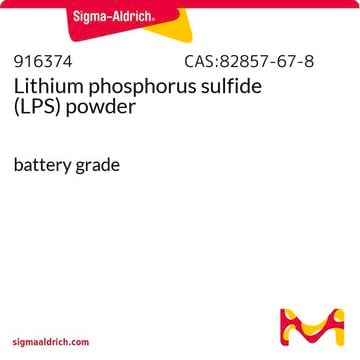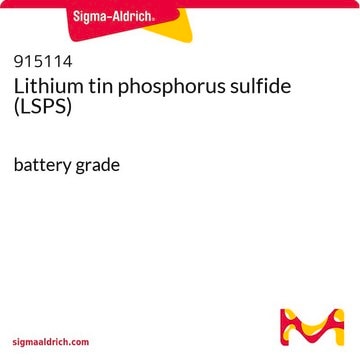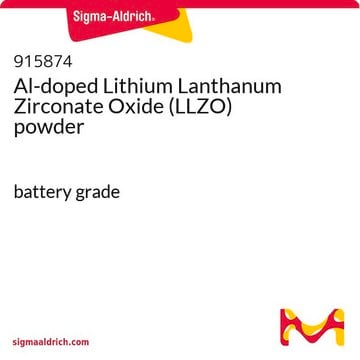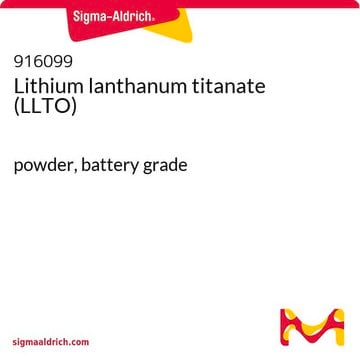916137
Lithium phosphorus sulfur chloride (LPSCl) powder
battery grade
Synonym(s):
Argyrodite solid electrolyte
About This Item
Recommended Products
grade
battery grade
Quality Level
Assay
≥99.5%
form
powder
mol wt
Mw 268.40 g/mol
composition
Li6PS5Cl
conductivity
0.01-0.1 mS/cm (ionic conductivity, cold-pressed pellet at room temperature)
density
1.64 g/cm3 (lit.)
application(s)
battery manufacturing
General description
Application
Features and Benefits
- High Ionic Conductivity
- Consistent Particle Size
- Wide Electrochemical Window
- Compatible with Lithium Metal Anodes
related product
Signal Word
Danger
Hazard Statements
Precautionary Statements
Hazard Classifications
Acute Tox. 3 Oral - Acute Tox. 4 Inhalation - Aquatic Acute 1 - Eye Dam. 1 - Flam. Sol. 1 - Skin Corr. 1B - Water-react 1
Supplementary Hazards
Storage Class Code
4.3 - Hazardous materials which set free flammable gases upon contact with water
WGK
WGK 3
Flash Point(F)
Not applicable
Flash Point(C)
Not applicable
Certificates of Analysis (COA)
Search for Certificates of Analysis (COA) by entering the products Lot/Batch Number. Lot and Batch Numbers can be found on a product’s label following the words ‘Lot’ or ‘Batch’.
Already Own This Product?
Find documentation for the products that you have recently purchased in the Document Library.
Our team of scientists has experience in all areas of research including Life Science, Material Science, Chemical Synthesis, Chromatography, Analytical and many others.
Contact Technical Service












